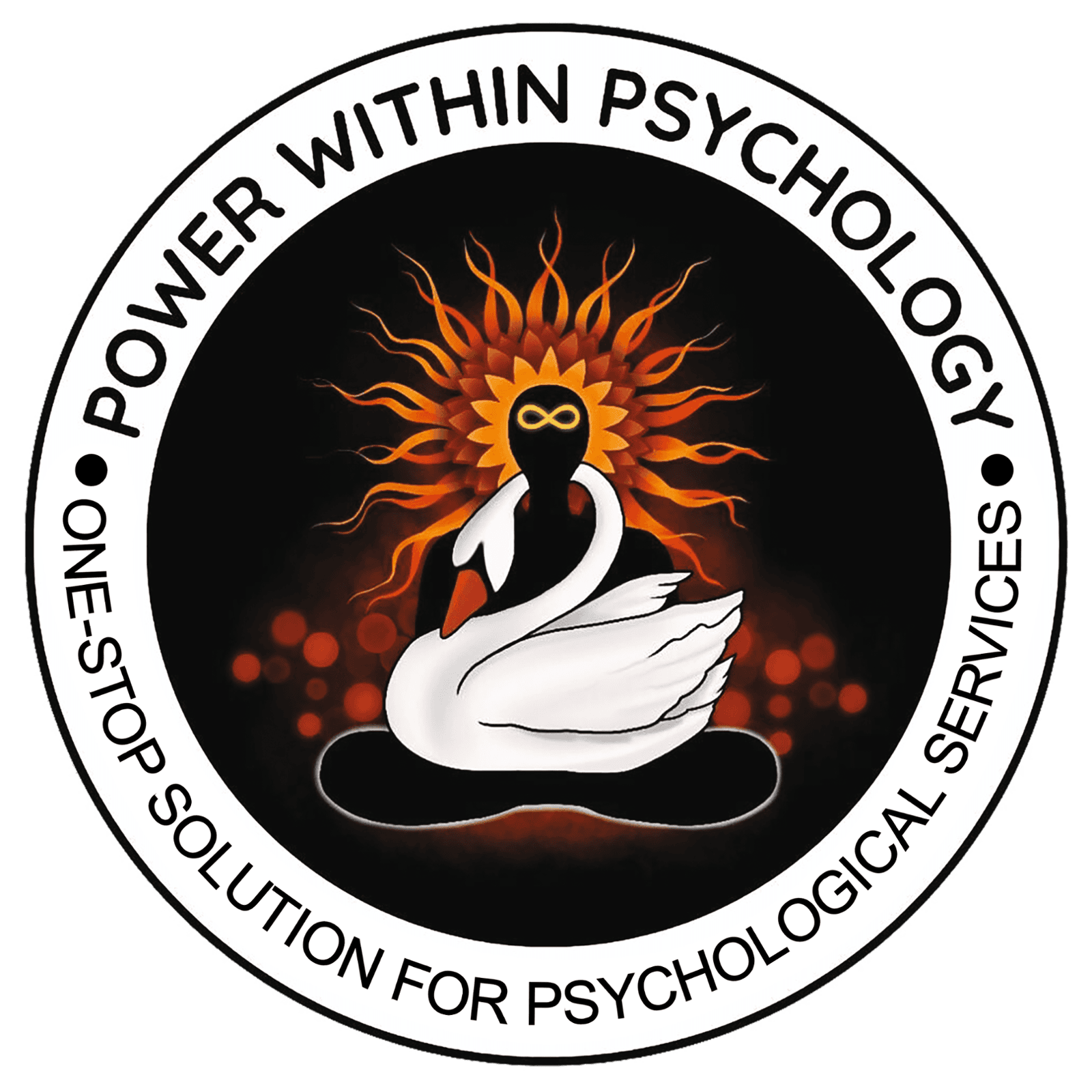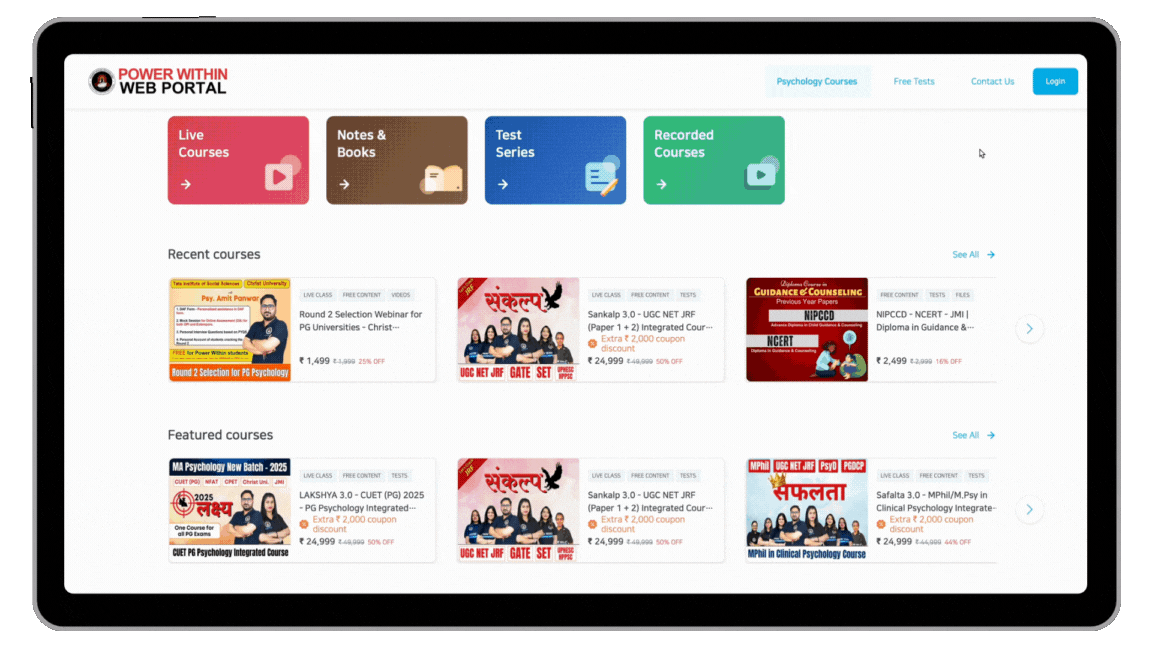Are MA Clinical Psychology Entrance Exams in Clinical Psychology Tough?
Formerly known as MPhil, the MA Clinical Psychology entrance exams are some of the most rigorous psychology exams in India. With the rebranding by RCI and evolving trends, these exams now demand not only foundational knowledge but also application-based skills across various psychological disciplines. Let’s explore why these exams are considered challenging and how to effectively prepare for them.
Factors Determining Exam Difficulty
1. Institution Prestige: Renowned institutions like:
- NIMHANS, Bangalore
- Institute of Human Behaviour & Allied Sciences (IHBAS), New Delhi
- Central Institute of Psychiatry (CIP), Ranchi
- Dr. Ram Manohar Lohia Hospital (RML), New Delhi
are known for their rigorous entrance tests, reflecting their status as top-tier academic hubs. These institutions attract highly competitive candidates, raising the bar for selection.
2. Number of Seats: The scarcity of seats amplifies the competition. Institutions use challenging exams to filter through a large pool of talented aspirants, ensuring only the best are selected.
3. Stipend Offered: Institutions offering better stipends tend to have more difficult exams to balance the influx of applicants. Examples include NIMHANS and CIP, known for their comprehensive assessments.
4. Institutions with Moderate Exam Difficulty: While some institutions have notoriously tough exams, others maintain a moderate level of difficulty. Universities like:
- Amity University
- King George’s Medical University (KGMU), Lucknow
- Gautam Buddha University, Noida
often repeat questions from previous years, making their exams less challenging. While these institutions may offer fewer to none stipends, they still provide quality education and training.
| NIMHANS, Bangalore | Significantly High |
| IHBAS, New Delhi | Significantly High |
| CIP, Ranchi | High |
| RML, New Delhi | High |
| IMHANS, Kerala | High |
| IMHH, Agra | High |
| KGMU, Lucknow | Moderate |
| NFSU, Gujarat & Delhi | Moderate |
| Amity University | Moderate |
Common Exam Patterns and Trends
Historically, MPhil entrance exams for clinical psychology focused heavily on abnormal and clinical psychology, with 55-65% of questions drawn from these areas. However, recent trends show a shift towards more questions from research methodology and statistics, now comprising 45-65% of the exam content. This reflects a growing emphasis on research skills in clinical training.
The remaining questions typically cover developmental psychology, personality theories, and other foundational topics. Some exams have even reduced the number of questions from clinical and abnormal psychology sections, surprising many candidates.
1. Subject Weightage
Abnormal and Clinical Psychology: Previously dominating 55-65% of the content.
Research Methodology and Statistics: Now a growing emphasis, contributing 45-65% of the exam.
2. Evolving Question Types
Greater focus on case studies, application-based scenarios, and diverse formats like assertion-reasoning and situational judgment questions.
Example: Questions about therapies such as Gestalt and CBT have become increasingly popular.
3. Foundational Topics
Neuropsychology, Erikson’s psychosocial stages, and Piaget’s developmental theory are frequently tested.
New Updates and Changes by RCI
The MPhil Clinical Psychology program has been renamed MA Clinical Psychology. This change reflects updated competency standards and aligns with the latest guidelines from RCI. To understand these changes better, explore our detailed YouTube video highlighting updates, tips, and strategies tailored for aspirants.
Preparing for the MPhil Entrance Exams
Preparation Strategies
1. Understand Your Learning Style
Identify whether you learn best through visual aids, structured notes, or group discussions.Adapt study habits accordingly to optimize retention.
1. Understand Your Learning Style
Identify whether you learn best through visual aids, structured notes, or group discussions.Adapt study habits accordingly to optimize retention.
2. Leverage Previous Year Papers
Review past question papers from institutions like NIMHANS, CIP, and RML to identify patterns and frequently tested concepts.Power Within’s SAFALTA course offers a rich repository of these papers.
2. Leverage Previous Year Papers
Review past question papers from institutions like NIMHANS, CIP, and RML to identify patterns and frequently tested concepts.Power Within’s SAFALTA course offers a rich repository of these papers.
3. Mock Tests and Practice
Regularly take mock exams to simulate real exam conditions.Analyze performance to strengthen weak areas.
4. Smart Study Techniques
Focus on high-weightage topics first, such as therapies and statistics.Use concise and trusted resources, avoiding excessive material.
5. Anxiety Management
Practice mindfulness techniques to stay calm during preparation and the actual exam.Remember William James’s principle: “A good nervous tone can enhance performance.”
3. Mock Tests and Practice
Regularly take mock exams to simulate real exam conditions.Analyze performance to strengthen weak areas.
4. Smart Study Techniques
Focus on high-weightage topics first, such as therapies and statistics.Use concise and trusted resources, avoiding excessive material.
5. Anxiety Management
Practice mindfulness techniques to stay calm during preparation and the actual exam.Remember William James’s principle: “A good nervous tone can enhance performance.”
Preview of the Previous Year Questions
1. The primary function of the hippocampus is:
a) Regulation of emotions
b) Formation of new memories
c) Visual processing
d) Motor coordination
Answer: b
Sol. The hippocampus is a critical brain structure primarily involved in the formation and consolidation of new memories. It plays a central role in transferring information from short-term memory to long-term memory. While the amygdala regulates emotions (option a), and the occipital lobe processes visual information (option c), motor coordination is managed by the cerebellum (option d). Thus, the correct answer is b) Formation of new memories.
2. Which of the following is a negative symptom of schizophrenia?
a) Perceptual hallucinations
b) Flat affect
c) Delusions
d) Disorganized speech
Ans. b
Sol. Negative symptoms of schizophrenia involve the reduction or loss of normal functioning. Flat affect refers to a diminished emotional expression, such as a lack of facial expressions or monotonous speech. Positive symptoms, on the other hand, include hallucinations (option a) and delusions (option c). Disorganized speech (option d) is also a positive symptom linked to thought disorder. Therefore, the correct answer is b) Flat affect.
3. In research, the independent variable in the study “The effect of exercise on anxiety levels” is:
a) Anxiety levels
b) Type of exercise
c) Frequency of exercise
d) Exercise
Ans. d
Sol. The independent variable is the factor manipulated in an experiment to observe its effect on the dependent variable. In this study, "exercise" (option d) is the variable being manipulated, and its impact on anxiety levels is being measured. Anxiety levels are the dependent variable (option a), while the type (option b) and frequency (option c) of exercise are specifics of the independent variable. Thus, the correct answer is d) Exercise.
4. The MMPI-2 scale that measures obsessive-compulsive tendencies is:
a) Scale 5
b) Scale 7
c) Scale 2
d) Scale 10
Ans. b
Sol. The Minnesota Multiphasic Personality Inventory (MMPI-2) includes Scale 7, also known as the Psychasthenia Scale, which measures obsessive-compulsive tendencies and difficulty concentrating due to anxiety. Scale 5 assesses masculinity-femininity (option a), Scale 2 measures depression (option c), and Scale 10 refers to social introversion (option d). Thus, the correct answer is b) Scale 7.
Final Thoughts
Cracking the MPhil entrance exam in clinical psychology is a significant challenge, but with the right preparation and mindset, it is achievable. Embrace your unique strengths, stay consistent in your efforts, and make use of all available resources. Remember, the journey to becoming a clinical psychologist is as important as the destination.
Stay determined and focused. Your dedication will pave the way to success in this noble and rewarding profession.
For further guidance and resources, including mock interview preparation and live courses, connect with Power Within Psychology.





